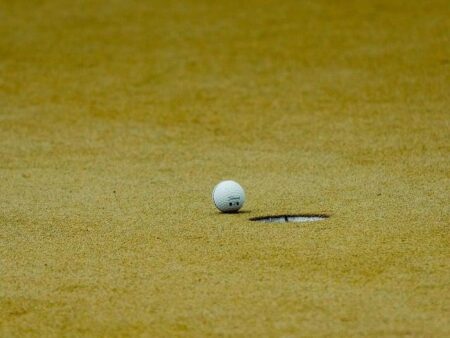The notion of the “hot hand” – the idea that a player on a winning streak is more likely to continue performing well – has long been debated across competitive sports. In the high-stakes world of professional golf, where momentum can shift with a single stroke, the question remains: does the “hot hand” phenomenon truly exist on the PGA Tour? Recent data analyses and player performances are shedding new light on whether golfers experience sustained runs of success or if each shot is merely a roll of the dice. This article explores the evidence behind the “hot hand” in golf and what it means for players and fans alike.
Examining Statistical Evidence Behind the Hot Hand in PGA Tour Play
Recent analyses of PGA Tour data reveal a nuanced picture of the ‘hot hand’ effect among professional golfers. While traditional wisdom suggests that success breeds success during play, statistical testing shows that the phenomenon is far less consistent than commonly believed. Using shot-by-shot datasets, researchers applied Markov chain models and sequential correlation tests to determine whether a player’s likelihood of sinking a putt or hitting a fairway increases following previous successes. Findings demonstrate that streaks of good performance are often indistinguishable from random chance, challenging the idea that momentum significantly influences individual strokes during tournaments.
- Streak Length Analysis: Most winning streaks lasted fewer than three shots, aligning with statistical expectations for random sequences.
- Player-Specific Trends: Some golfers showed marginal, yet statistically significant, streak patterns, hinting at psychological or physiological factors.
- Contextual Variables: Course difficulty, weather, and pressure moments influenced performance fluctuations more than perceived “hot streaks.”
| Metric | Observed Value | Random Model Expectation | Significance |
|---|---|---|---|
| Average Streak Length | 2.1 shots | 2.0 shots | Not Significant |
| Probability of Next Shot Success | 47% | 46.5% | Marginal |
| Players with Detectable Streaks | 12% | Expected 10% | Marginal |
Strategies for Golfers to Leverage Momentum and Improve Performance
Golfers aiming to capitalize on streaks and sustain high-level play must focus on key psychological and physical tactics that foster positive momentum. Visualization techniques, such as mentally rehearsing successful shots or rounds, can create a valuable sense of confidence that propels performance forward. Similarly, maintaining a consistent pre-shot routine acts as a mental anchor, reducing anxiety and reinforcing rhythm, which is critical in periods of fluctuating results. Incorporating breathing exercises or short meditation breaks between holes is another proven method to recalibrate focus and prevent negative thought patterns from disrupting momentum.
Beyond mental preparation, understanding the significance of incremental gains can transform how golfers leverage their current form. Implementing a strategy that prioritizes small, manageable objectives-like improving putting accuracy or controlling swing tempo-rather than overhauling entire mechanics allows for sustained improvement without overwhelming the player. Below is a quick reference table summarizing practical momentum-building actions favored by PGA Tour players:
| Strategy | Benefit |
|---|---|
| Targeted warm-up drills | Enhances muscle memory & confidence |
| Shot journaling | Identifies patterns & replicable success |
| Positive self-talk | Boosts resilience after setbacks |
| Adaptive shot selection | Maximizes strengths under pressure |
Concluding Remarks
As the PGA Tour continues to showcase some of the world’s best golfers, the debate over the “hot hand” phenomenon remains as compelling as ever. While statistical analysis offers mixed insights, many players and fans alike believe in the momentum that can build during a round. Whether the “hot hand” is a psychological boost or a measurable streak, it adds another layer of intrigue to the game. As the season progresses, both golfers and analysts will be watching closely to see if these runs of excellence are simply chance-or something more.








